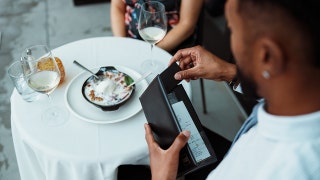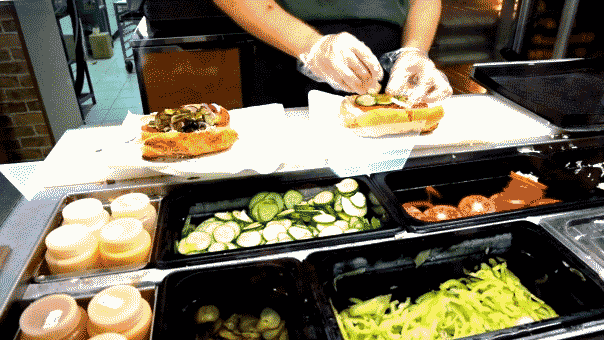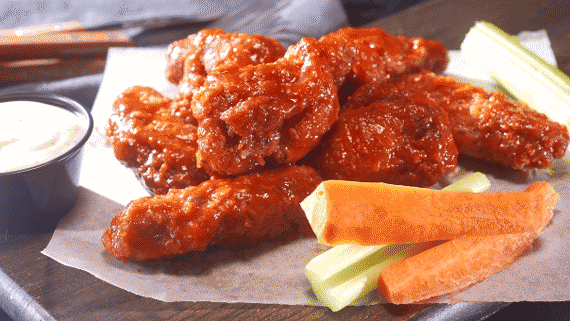How celebratory 'Election Cakes' during the Founders' time inspired a bestselling author and others
Bestselling author A.J. Jacobs of New York City tells Fox News Digital how and why he started an "Election Cake" movement, why it's important this fall, and why democracy and voting represent a "sweet treat."
The French queen Marie Antoinette supposedly said, "Let them eat cake!"
Our Founding Fathers said, "Let us eat cake."
And I say, the Founders were onto something.
Let’s bring back cake on Election Day. (See the video at the top of this article, and others below as well.)
To back up a bit: When our country was founded, Election Day was seen as a joyous occasion.
Voting wasn’t viewed as a chore. It was a glorious new right worthy of a thousand huzzahs.
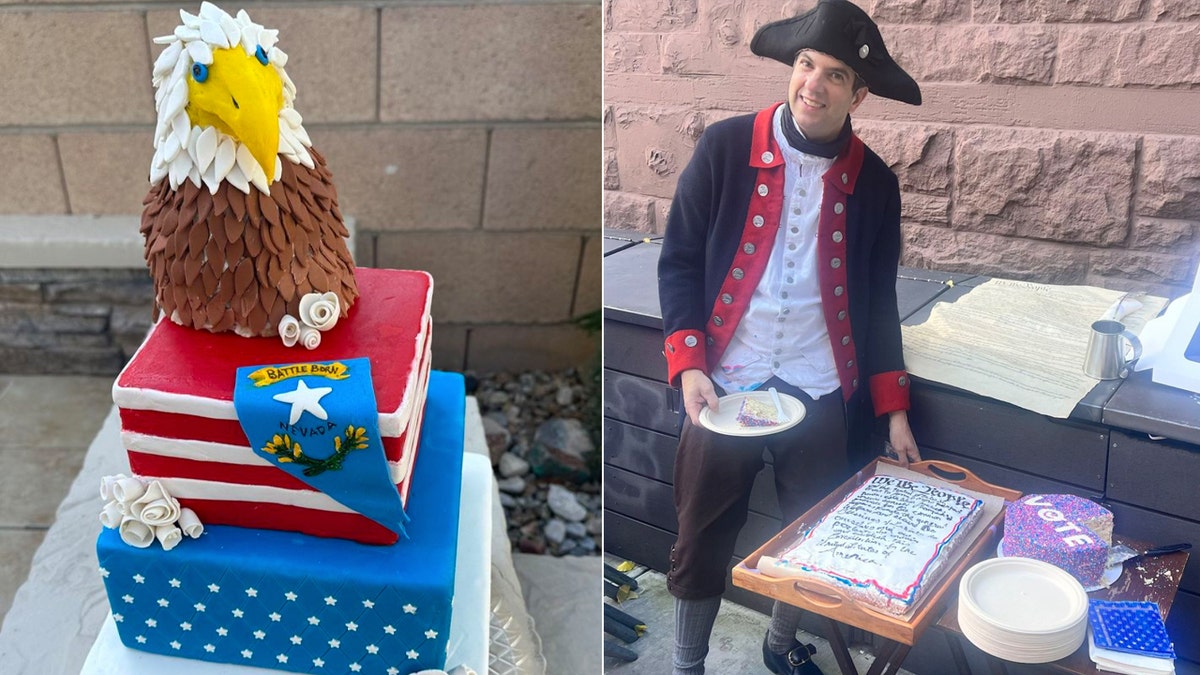
Bestselling author A.J. Jacobs, in an original series for Fox News Digital, has been sharing his year-long adventures of "living" the Constitution. This time around, he notes that "early Americans were thrilled and amazed they had the opportunity to choose their own leaders." (A.J. Jacobs)
Early Americans were thrilled and amazed they had the opportunity to choose their own leaders. (With the big asterisk that only some Americans were allowed to vote — a group that did not include women or Black people.)
For those privileged enough to vote, Election Day was cause for celebration.
There were parades, music, farmer’s markets, rum punch.
In the 18th century, Americans made Election Cake.
It wasn’t quite Coachella, but it was festive.
And there was cake. In the 18th century, Americans made Election Cake.
NEW YORK CITY MAN ‘LIVED’ THE CONSTITUTION FOR A YEAR: HERE ARE 7 THINGS HE LEARNED
They baked cakes with figs and cloves and brought them to the polls to share with neighbors.
Sometimes, the cakes were enormous. One early recipe even called for 14 pounds of butter and 10 pounds of sugar.
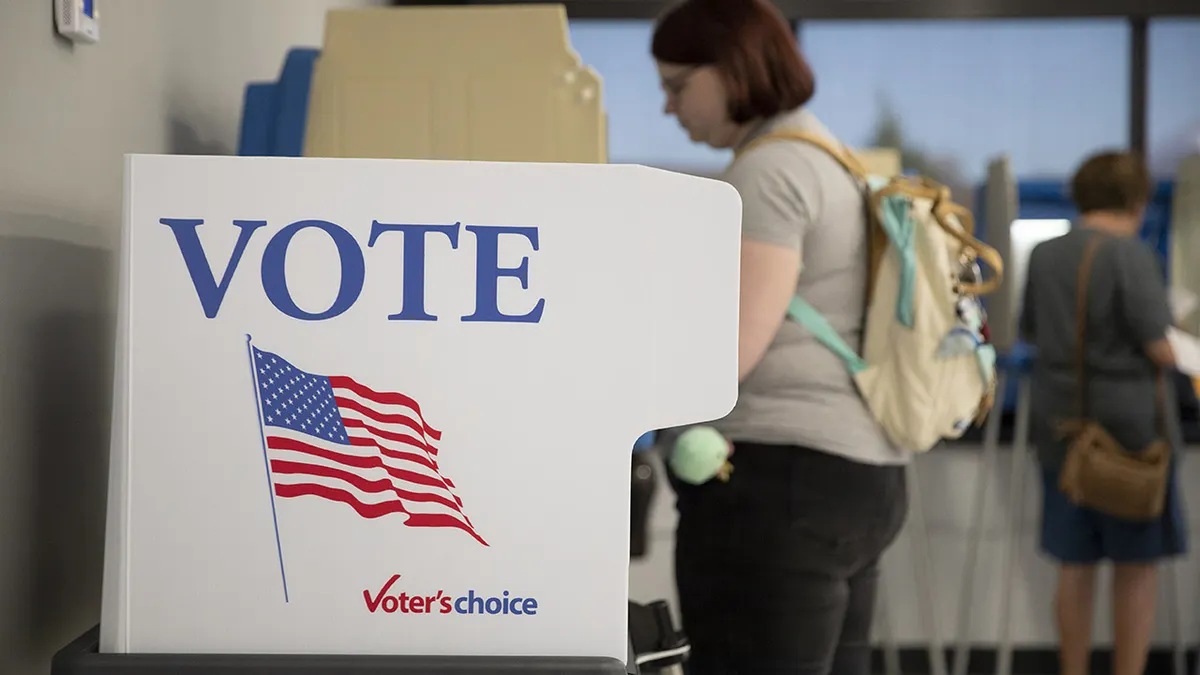
"Last November, I urged Americans to bake cakes and bring them to the polls, or share with co-workers, or just eat them with family and friends," says Jacobs. (Christopher Mark Juhn/Anadolu via Getty Images)
I recently wrote a book, "The Year of Living Constitutionally," about what we can learn from the Founders.
And one big lesson is that we should revive the long-lost tradition of Election Cakes.
WHY AMERICANS NEED MORE FACE-TO-FACE CIVIL DISCUSSIONS 'WITH FOLKS OUTSIDE THEIR OWN BUBBLE'
Last November, I urged Americans to bake cakes and bring them to the polls, or share with co-workers, or just eat them with family and friends.
Project Election Cake was a way to remind ourselves and others that democracy is sweet
People in all 50 states joined the movement. Some used that original fig-and-clove recipe from 1796.
Others modernized the recipe and themed the cake to their state or their passion.
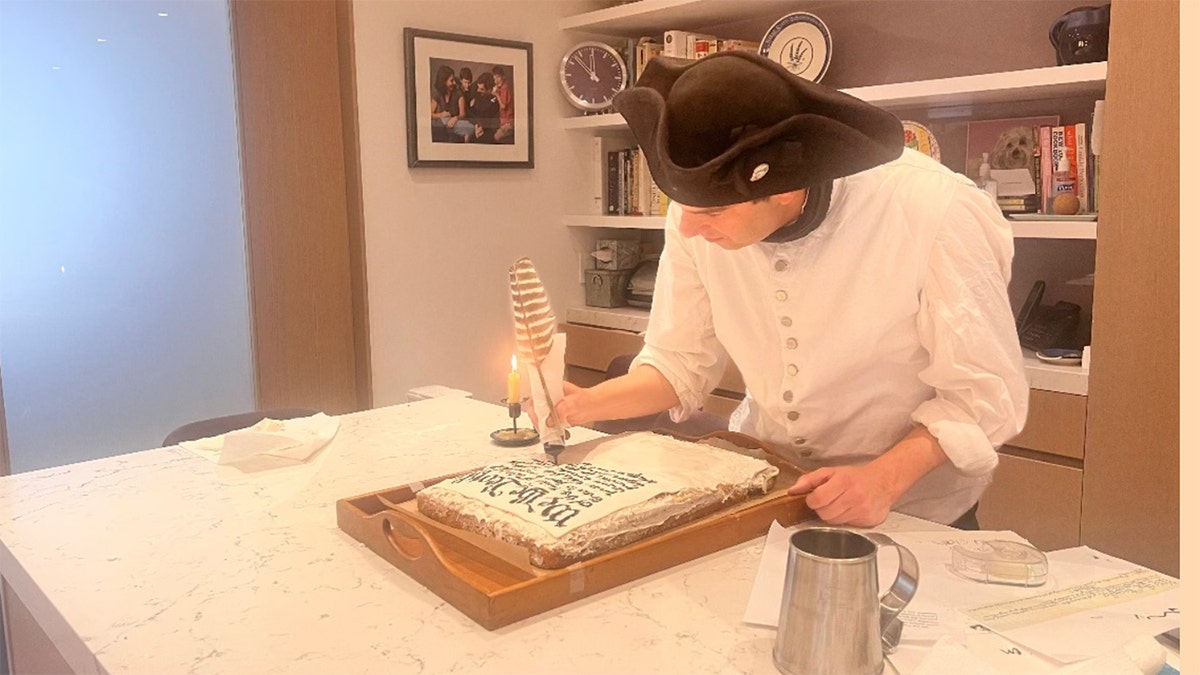
Jacobs, author of "The Year of Living Constitutionally," is shown "icing" his Election Cake. (A.J. Jacobs)
For instance, Lisa Green-Clopton of Georgia added peaches. Virginia’s Rachael Dickson topped her cake with a tiny — and working! — Revolutionary War cannon.
It was a wonderful experience.
All the best American traits were on display.
Baking an Election Cake may be a small thing, but it’s not trivial.
Here are three:
1. Tenacity
Missouri’s Debbie Hartle got in a car crash and was in the hospital but didn’t want to leave me in the lurch — so she convinced a friend to bake a Missouri cake.
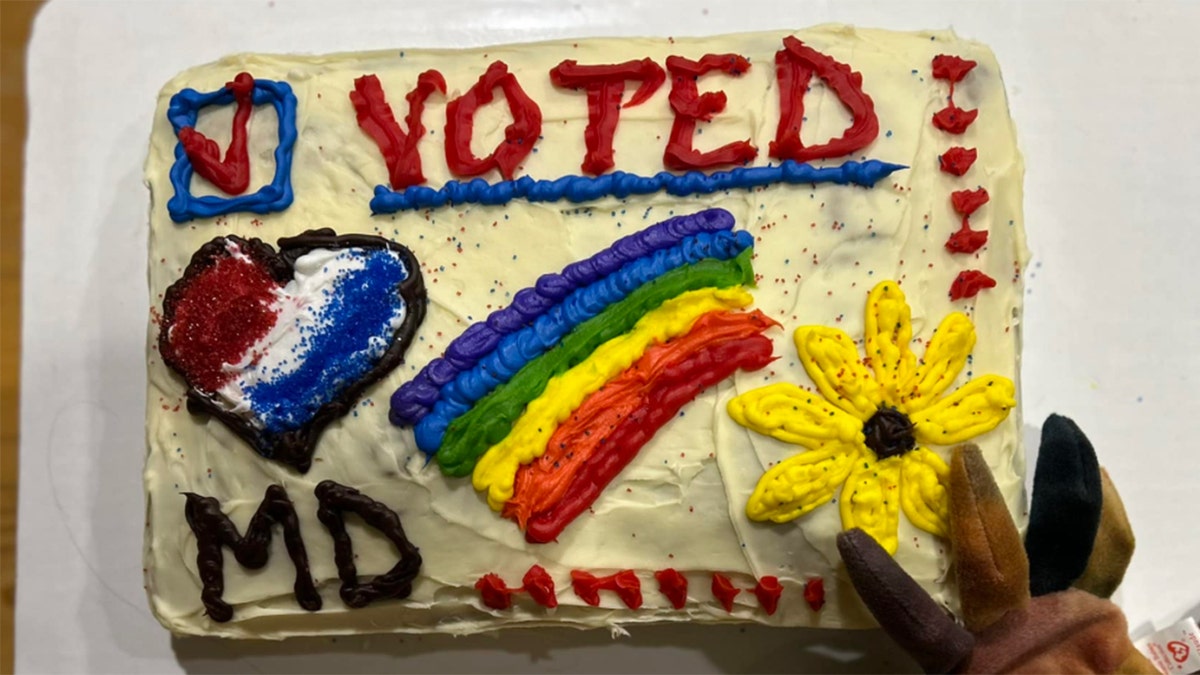
A Maryland voter made an Election Cake, as shown here. (AJ Jacobs)
2. Innovation
My mom made cupcakes in ice cream cones, that wonderfully clever American food holder that became famous at the St. Louis World’s Fair in 1904.
3. Community
People turned the baking and eating into a neighborhood activity, taking it to the streets, their county election offices, their school classrooms.
People said Project Election Cake was a way to remind ourselves and others that democracy is sweet.
Baking an Election Cake may be a small thing, but it’s not trivial.
A group of political scientists published a 2007 study in the journal Political Science & Politics. They called the paper "Putting the Party Back into Politics."
For their experiment, the researchers set up little festivals with music and food at various voting stations around the country.
CLICK HERE TO SIGN UP FOR OUR LIFESTYLE NEWSLETTER
The result? The festivities boosted turnout by almost 7% — which is not nothing.
And although we have let this tradition lapse, other countries have picked it up.
In Australia, they don’t bake cakes on Election Day but instead have a tradition called the Democracy Sausage.
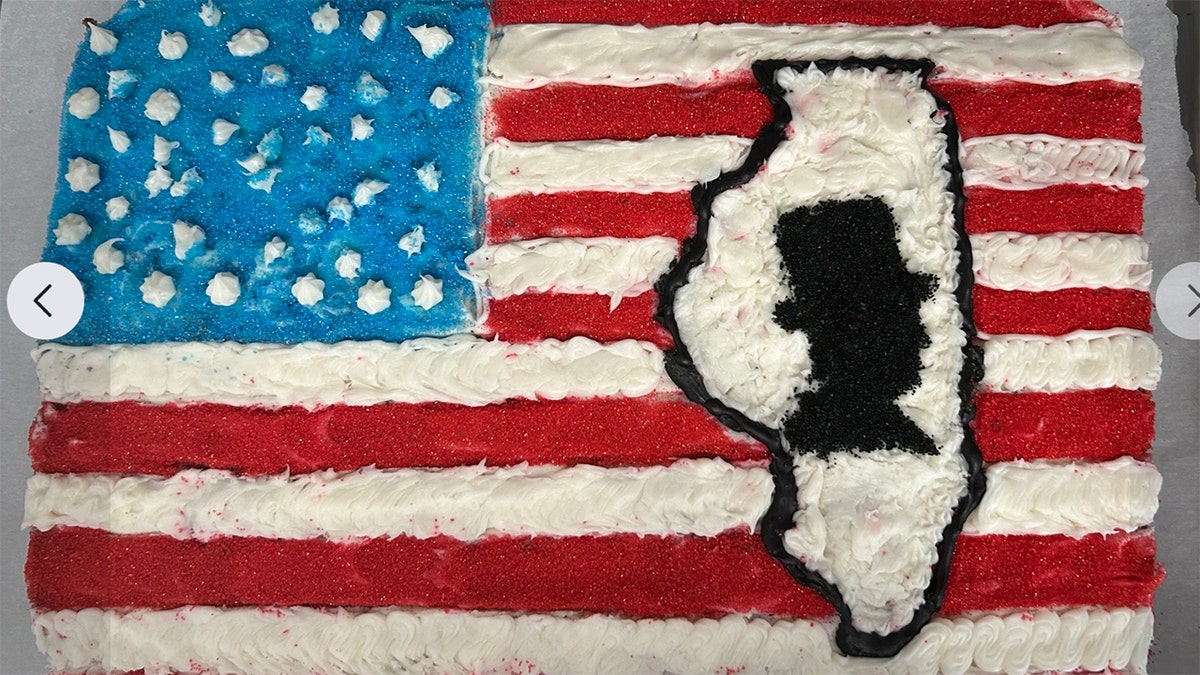
The election cake from Illinois has a silhouette of Abraham Lincoln on the front. (AJ Jacobs)
Election Day is a nationwide barbecue.
CLICK HERE TO GET THE FOX NEWS APP
I’m doing project Election Cake again this November.
So, if you feel inspired, come and bake for America and remind everyone that the freedom to choose our leaders is a treat.
For more Lifestyle articles, visit www.foxnews.com/lifestyle
In researching my book, I discovered Marie Antoinette probably did not say, "Let them eat cake."
But America’s Founders were definitely pro-sweets — and I am, too.
"The Year of Living Constitutionally: One Man's Humble Quest to Follow the Constitution's Original Meaning" by A.J. Jacobs (2024) is published by Crown.
